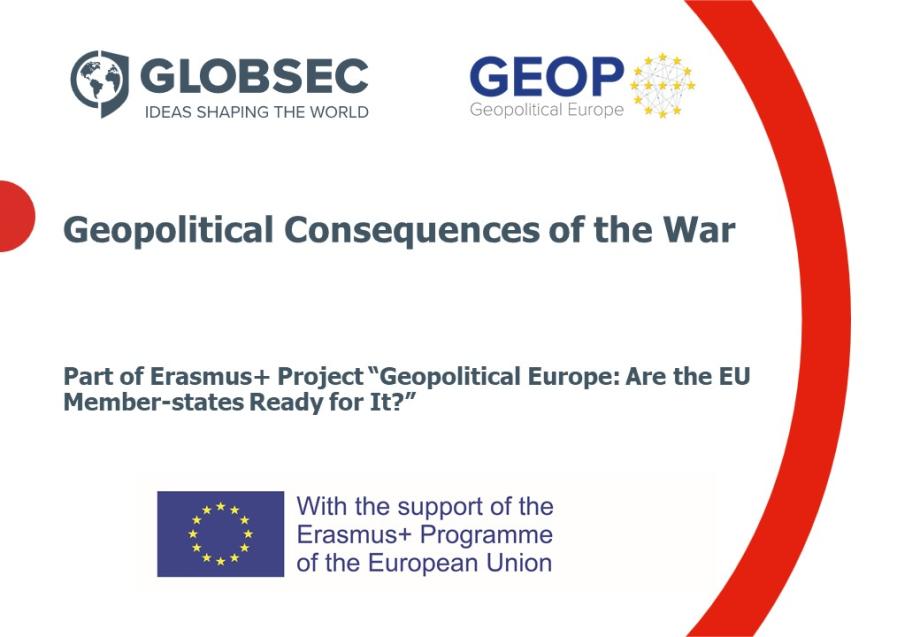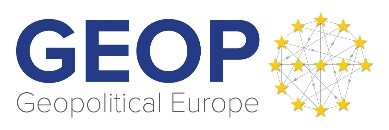Summary of Event - “Geopolitical Consequences of the War”

GLOBSEC’s annual Château Béla Central European Strategic Forum was this year dominated by the rupture of the current European security architecture stemming from Russia’s unprovoked invasion of Europe. The Forum featured various closed-door discussions with policymakers, business leaders, and experts including a session titled “Geopolitical Consequences of the War” with the support of the Erasmus+ Programme of the European Union.
Russia’s invasion is the greatest tectonic change in the global geopolitical order since the end of the Cold War. Democratic West will need to prepare for a long confrontation with Moscow. The aim of the discussion was to address how the West, NATO, and the EU should address the changing geopolitical environment and what will be the long-term consequences for Europe, its member states, its immediate neighbourhood but also for the international arena as such.
Discussants pointed out that the post-Cold War security order is over. The Alliance and the EU need to step up in the area of strategic responsibility. The security power balance of the international order will change, and a new modus operandi will need to be established. Europe’s responsibility and role to its neighbourhood and more broadly, with conflict on its doorsteps, will only increase.
Key take-aways:
- There is a plausible scenario for Russia’s reminiscent influence in Europe to be diminished if the war gets more complicated and prolonged for Moscow. This is a long-term exercise, but one that Europe should actively prepare for.
- CEE stands on the frontline of this continental turbulence and should look to assume a larger leadership role both supporting Ukraine, but also for enabling further resilience and political solidary in the Balkans, across NATO and the EU’s Eastern flank. The CEE member states can lead in finding convergence among all EU states in strengthening CFSP and CSDP.
- It has taken some time, but the EU is in the early phase of a full transformation of its ethos and is learning how to speak the language of power. This continual evolution will be directly linked to its ability to establish its strategic autonomy and outline it through the strategic compass.
- The EU’s geopolitical posture has changed drastically since Russia’s invasion. Despite these positives, the EU must continue to hold its position, despite economic pains, and be willing to take more drastic choices should Russia resort to more extreme war tactics like the use of chemical or biological weapons.
- When it comes to immediate but also long-term help to Ukraine the West’s response should continue to provide Kyiv with arms, intelligence, and humanitarian support. In the long-term a comprehensive recovery package, akin to the Marshall Plan, must be delivered, and well financed to aid the recovery of the country.
*The summary is published within GLOBSEC GEOPE—Geopolitical Europe: Are the Member States Ready for It? Project supported by Jean Monnet Actions of the EU’s Erasmus+ program.
*The European Commission support for the production of this publication does not constitute an endorsement of the contents which reflects the views only of the authors, and the Commission cannot be held responsible for any use which may be made of the information contained therein.

